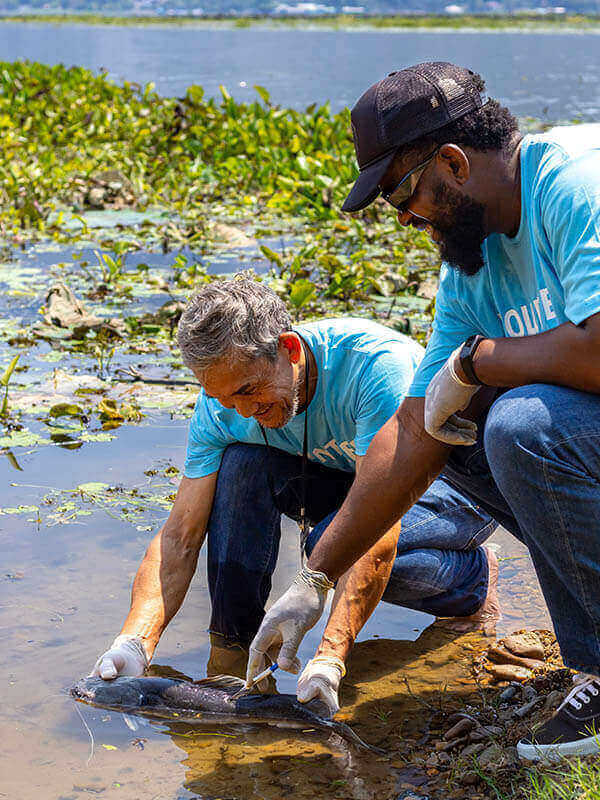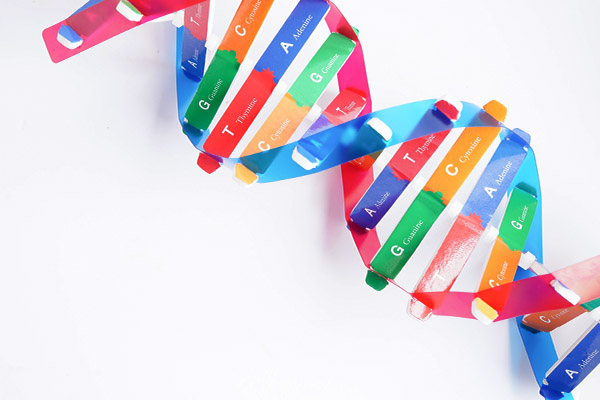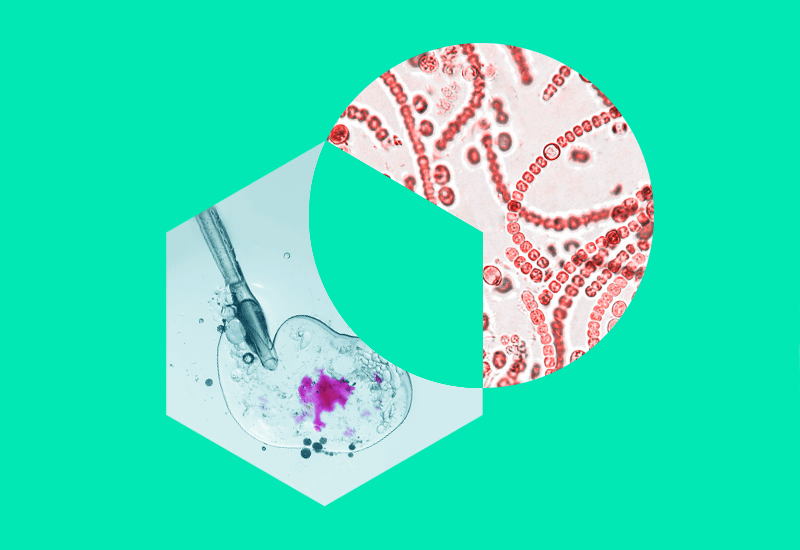Explore the biomedical and biological science behind the headlines.
This course, led by Dr Ruth Grady, aims to introduce you to topical areas of bioscience, building from basic knowledge towards engaging with current research literature.
Entertainment or news media frequently sensationalise biological and biomedical stories, either oversimplifying the topic or through inaccurate reporting ('Spicy diet can beat dementia' anybody?).
This unit considers topical issues within biology, exploring the science behind the headlines to help you develop an informed opinion, and to discuss potential future directions of selected topics.
If you have an interest in life sciences, but haven't had the opportunity to study it at a higher level, then this is the unit for you
You will work alongside students from a wide range of disciplines.
About
Learn about the the basics of DNA and beyond
Topics will include
- The basics of DNA and beyond
- Development and stem cells
- Precision medicine
- Human brain function
- Microbes and infectious disease
- Conservation biology

Unit details
What should I know about this unit?
Current Topics in Biology
- Semester 2
- Face-to-face delivery
- 10 or 20 credits
- Level 2
- Faculty of Biology, Medicine and Health
The aim of this unit is to introduce you to topical areas of bioscience, building from basic knowledge towards engaging with current research literature.
On successful completion of the unit, you will be able to:
- Describe and evaluate the basic science underpinning current topical issues in the biological sciences
- Debate and defend informed opinions about current biology issues, including their impact on society
- Work collaboratively in an interdisciplinary team to investigate and present an aspect of bioscience research
In addition, for 20 credits:
- Prepare written communications aimed at both scientific and non-technical/public audiences
Topics covered in previous years:
- The basics of DNA...and beyond: what have we learnt from sequencing the human genome?
- Development and Stem Cells: How does the fertilised egg become a fully formed adult body? What are stem cells and what are their potential medical uses?
- Precision Medicine: Tailoring drug treatments for individuals. Why do some patients respond better than others to the same treatment?
- The Human Brain: How do nerve cells communicate? Understanding neurological disorders such as Parkinson's and Alzheimer's
- Microbes and Infectious Disease: What issues are the most pressing for microbiologists today? Understanding flu, superbugs (MRSA) and sexually-transmitted diseases. Just how important are our gut bacteria?
- Conservation Biology: What is biodiversity, can we protect it and why should we care? Should we worry about invasive species?
This unit is delivered face-to-face.
- 18 x 1 hour (lectures and seminars; a mixture of in-person lectures and pre-recorded material)
- 2 x 1 hour information sessions including assessment preparation
- 1 x 1 hour video presentation
- Group project
10 Credits
- Short note exam (40%)
- 2 coursework assignments with a choice of topics (choose 2 of 5) and a choice of presentation (short, three-page essay relating to your degree discipline with one of the topics; taking a media story and sourcing related research papers) (40%)
- Group activity (creating a 3-minute video showcasing current research on one topic) (20%)
20 Credits
- Short note exam (20%)
- 4 x coursework assignments with a choice of topics (choose 4 of 5) and a choice of presentation (short, three-page essay relating to your degree discipline with one of the topics; taking a media story and sourcing related research papers) (70%)
- Group activity (creating a 3-minute video showcasing current research on one topic) (10%)
- Ruth Grady
- Maggy Fostier
- Susan Cochran
- Bipasha Choudhury
UCIL units are designed to be accessible to undergraduate students from all disciplines.
UCIL units are credit-bearing and it is not possible to audit UCIL units or take them for additional/extra credits. You must enrol following the standard procedure for your School when adding units outside of your home School.
If you are not sure if you are able to enrol on UCIL units you should contact your School Undergraduate office. You may wish to contact your programme director if your programme does not currently allow you to take a UCIL unit.
You can also contact the UCIL office if you have any questions.
This unit is also available with a different course unit code. To take a UCIL unit you must choose the unit with a UCIL prefix.
How to enrol
UCIL units are designed to be accessible to undergraduate students from all disciplines. Depending on your School enrolment can be completed in one of two ways:
Enrolment using the Course Selection System
You may be able to enrol directly onto a UCIL unit using the Course Unit Enrolment System.
Enrolment via your School
If you cannot see the UCIL unit you wish to study or it is blocked out on the Course Unit Enrolment System you may need to request approval to study the unit directly from your School.
Please get in touch with the UCIL team at ucil@manchester.ac.uk if you have any questions.
Feedback
The delivery of this unit has been thoroughly engaging and it covered a broad range of topics at an accessible level. I have been really impressed and wanted to recognise the staff's brilliant efforts and thank the department for the opportunity to study this topic outside of my degree.
Meah Worsencroft
English Literature and American Studies student


